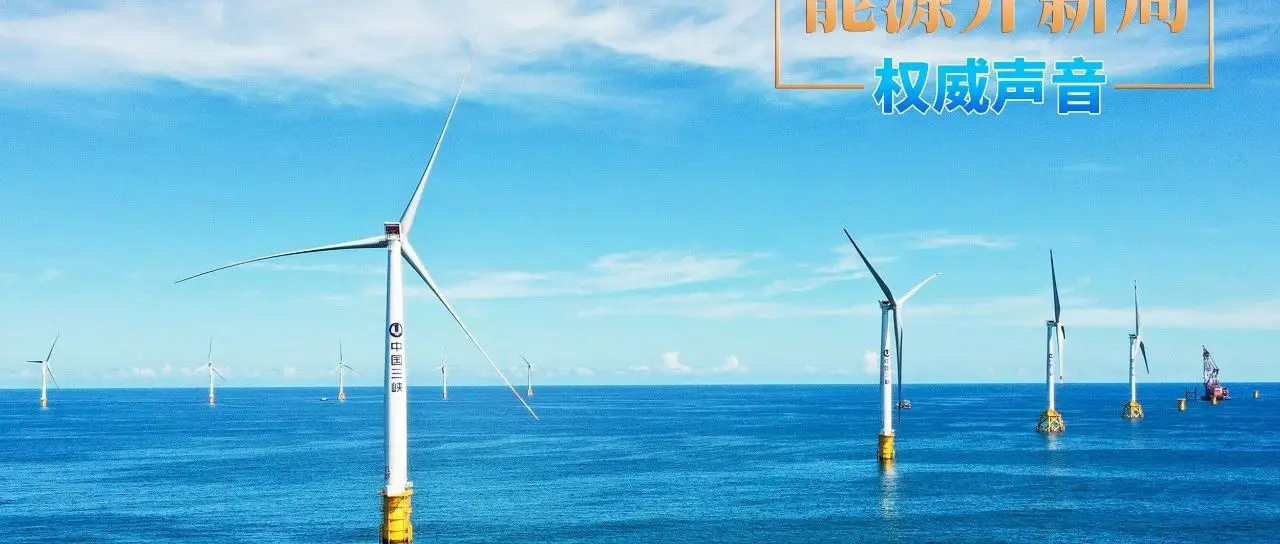Economic Daily: Fill the Gap! China's Energy Law Comes into Effect from Month Day, Year — Strengthening the Legal Foundation of the Energy Industry

On [date], the 12th meeting of the Standing Committee of the 14th National People's Congress voted to pass the "Energy Law of the People's Republic of China." The law will come into effect on [date].
Energy is the lifeblood of the national economy, closely related to the people's livelihood and national security. As the world's largest producer and consumer of energy, China has long lacked a foundational and guiding law in the energy sector, making it urgent to fill this legislative gap. The enactment of an energy law holds profound and far-reaching significance for further solidifying the legal foundation of the energy industry, ensuring national energy security, and driving the transition towards green and low-carbon development.
Ma Zhengping, Deputy Director of the Civil Law Office of the Legislative Affairs Commission of the National People's Congress, stated that for the first time in the history of China's energy development, it is stipulated in the law that the national energy strategy should be clearly defined as a fundamental principle to be adhered to in energy work, providing a guideline for high-quality energy development in the new era and ensuring that the energy industry progresses steadily on the track of the rule of law. As an important driver of the global energy transition towards green and low-carbon development and a key player in addressing climate change, China has promulgated the Energy Law to declare its energy strategy and policy orientation.
The Energy Law consists of nine chapters and eighty articles, which are, in order, General Provisions, Energy Planning, Energy Development and Utilization, Energy Market System, Energy Reserves and Emergency, Energy Science and Technology Innovation, Supervision and Administration, Legal Responsibility, and Supplementary Provisions.
Highlighting the strategic orientation to accelerate the green and low-carbon development of energy is one of the notable aspects of the Energy Law. China's energy resource endowment is characterized by "abundant coal, scarce oil, and limited natural gas," while it is rich in wind, solar, biomass, geothermal, and ocean energy resources, indicating significant potential for the development of renewable energy.
"Addressing challenges such as enormous pressure on energy demand, significant supply constraints, and arduous tasks in the green and low-carbon transformation requires vigorous development of renewable energy," said Ma Zhengping. The Energy Law, which coordinates high-quality development and high-level security at the legal level, will provide strong legal safeguards for accelerating the construction of a new energy system that is clean, low-carbon, safe, and efficient.
The carbon emissions from energy activities in our country account for about % of the total carbon emissions. The Energy Law promotes both the revolution in energy supply and the revolution in energy consumption. On one hand, it supports the priority development and utilization of renewable energy, clearly stipulates policies for the development and utilization of different types of renewable energy, and effectively ensures the supply of green energy. On the other hand, it encourages energy users to actively participate in energy demand response, expand the consumption of green energy, and practice green and low-carbon production and lifestyle.
Ma Zhengping stated that focusing on energy supply security, building a solid foundation for energy security, the Energy Law will clarify the responsibilities and obligations of the government, enterprises, and energy users, establishing a systematic, comprehensive, and highly coordinated energy security responsibility system; strengthening the institutional design of key aspects such as reserves and emergency response, emphasizing the foundational and guiding nature of the system, which will effectively enhance the ability to prevent and resolve risks in the energy sector.
In terms of balancing development and security, the Energy Law is based on the endowment of our country's energy resources, strengthens the diversified and coordinated security capabilities of energy, adheres to the principle of establishing before breaking, and leverages coal's fundamental security and system-adjusting roles in the energy supply system, promoting the safe, reliable, and orderly substitution of non-fossil energy for fossil energy.
At the same time, the Energy Law provides special provisions for energy planning, offering effective institutional safeguards for various and multi-level needs at the national and local levels, across industries and enterprises, and for short-term and long-term perspectives. It also includes special provisions for energy technology innovation, strengthening the autonomy and control of the industrial chain and supply chain, and preparing to cultivate new quality productivity in the energy sector. The Energy Law stipulates that the field of energy technology innovation should be a key support area in national science and technology development and high-tech industry development plans. It encourages and guides investment, promotes digital and intelligent development, supports the cultivation of high-quality professionals in energy technology, and further enhances resource investment and security efforts.
China has enacted the Coal Law, the Electricity Law, the Energy Conservation Law, the Renewable Energy Law, and the Oil and Natural Gas Pipeline Protection Law. The enactment of the Energy Law is a significant milestone in the establishment of a comprehensive energy legal system. It provides important guidance for clarifying the positioning of different types of energy, optimizing their interrelationships, and comprehensively leading the revision of specific energy laws. This will accelerate the formation of a systematic, scientific, standardized, and effectively operating energy legal system. (Li Wanxiang)
Please translate the following content directly into English without explanation. Understand the meaning of the article before translating. Do not return any unrelated information that is not relevant to the original text. The content is as follows: (Source: Economic Daily News Client)
